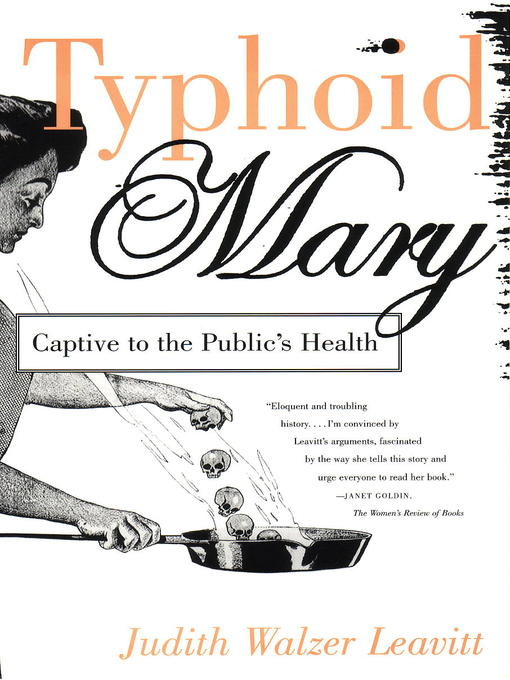She was an Irish immigrant cook. Between 1900 and 1907, she infected 22 New Yorkers with typhoid fever through her puddings and cakes; one of them died. Tracked down through epidemiological detective work, she was finally apprehended as she hid behind a barricade of trashcans. To protect the public's health, authorities isolated her on Manhattan’s North Brother Island, where she died some 30 years later.
This book tells the remarkable story of Mary Mallon—the real Typhoid Mary. Combining social history with biography, historian Judith Leavitt re-creates early 20th-century New York City, a world of strict class divisions and prejudice against immigrants and women. Leavitt engages the reader with the excitement of the early days of microbiology and brings to life the conflicting perspectives of journalists, public health officials, the law, and Mary Mallon herself.
Leavitt’s readable account illuminates dilemmas that continue to haunt us in the age of COVID-19. To what degree are we willing to sacrifice individual liberty to protect the public's health? How far should we go? For anyone who is concerned about the threats and quandaries posed by new epidemics, Typhoid Mary is a vivid reminder of the human side of disease and disease control.
-
Creators
-
Publisher
-
Release date
February 18, 2014 -
Formats
-
Kindle Book
-
OverDrive Read
- ISBN: 9780807095591
-
EPUB ebook
- ISBN: 9780807095591
- File size: 6299 KB
-
-
Languages
- English
-
Reviews
-
Publisher's Weekly
January 1, 1996
Mary Mallon was a feisty 36-year-old Irish immigrant who made her living as a cook for wealthy New York City families when she was seized, in 1907, by officers of the city's Public Health Department and detained in a cottage on North Brother Island where, except for two years, she lived in isolation for the remaining 26 years of her life. Her crime was that, although healthy herself, she was a carrier of the typhus bacillus and had innocently infected 22 people. Leavitt raises questions about this famous case: whether race, gender and class bias played a part in Mallon's detention. At the time, feelings against the Irish were strong; and she was a woman and a servant. Male carriers of the bacillus were not deprived of their livelihoods, nor were they isolated from society. The press, clamoring for a news-making story, influenced the harsh treatment of Mallon, demonizing her as "Typhoid Mary." Most important, Leavitt, a professor of medical history at the University of Wisconsin, discusses the difficult issue of serving the public good while protecting individual liberty. She suggests that instead of stigmatizing or impoverishing those who unknowingly threaten the health of the community, we treat them humanely and guarantee them economic security. Resurrecting forgotten history, Leavitt raises an alarm that is much needed in this day of AIDS.
-
Formats
- Kindle Book
- OverDrive Read
- EPUB ebook
Languages
- English
Loading
Why is availability limited?
×Availability can change throughout the month based on the library's budget. You can still place a hold on the title, and your hold will be automatically filled as soon as the title is available again.
The Kindle Book format for this title is not supported on:
×Read-along ebook
×The OverDrive Read format of this ebook has professional narration that plays while you read in your browser. Learn more here.

